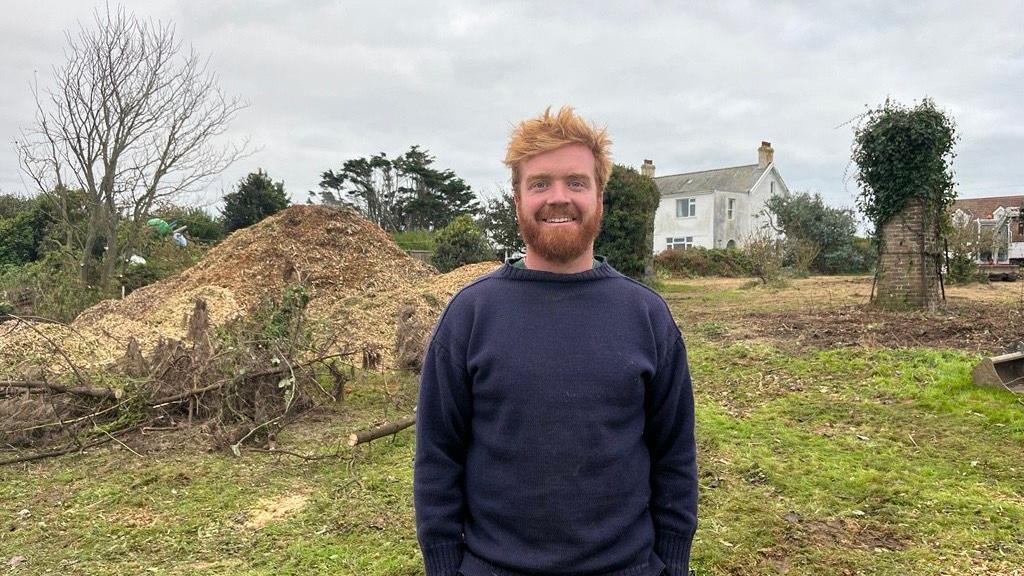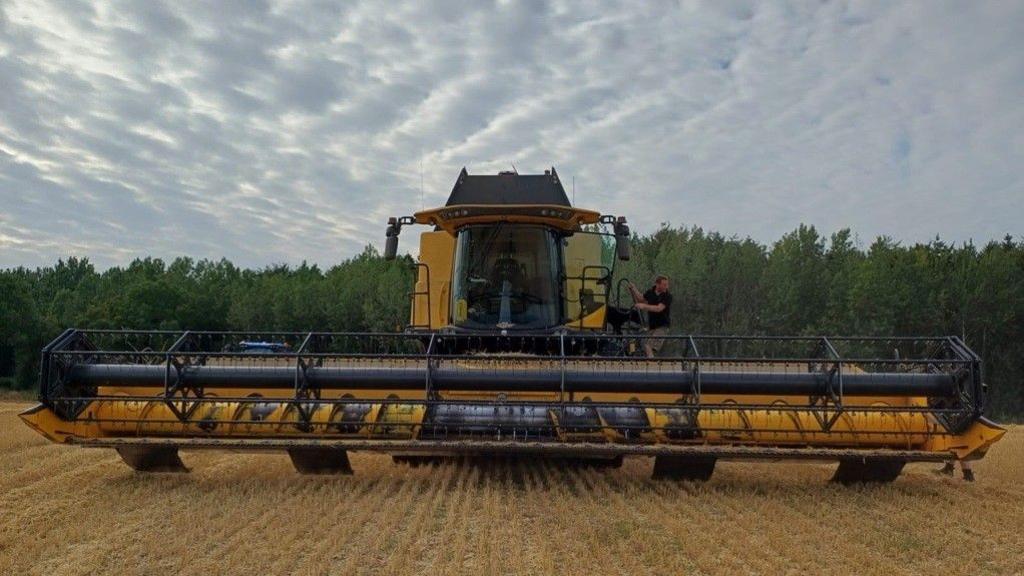'Farming's future in Guernsey is looking good'
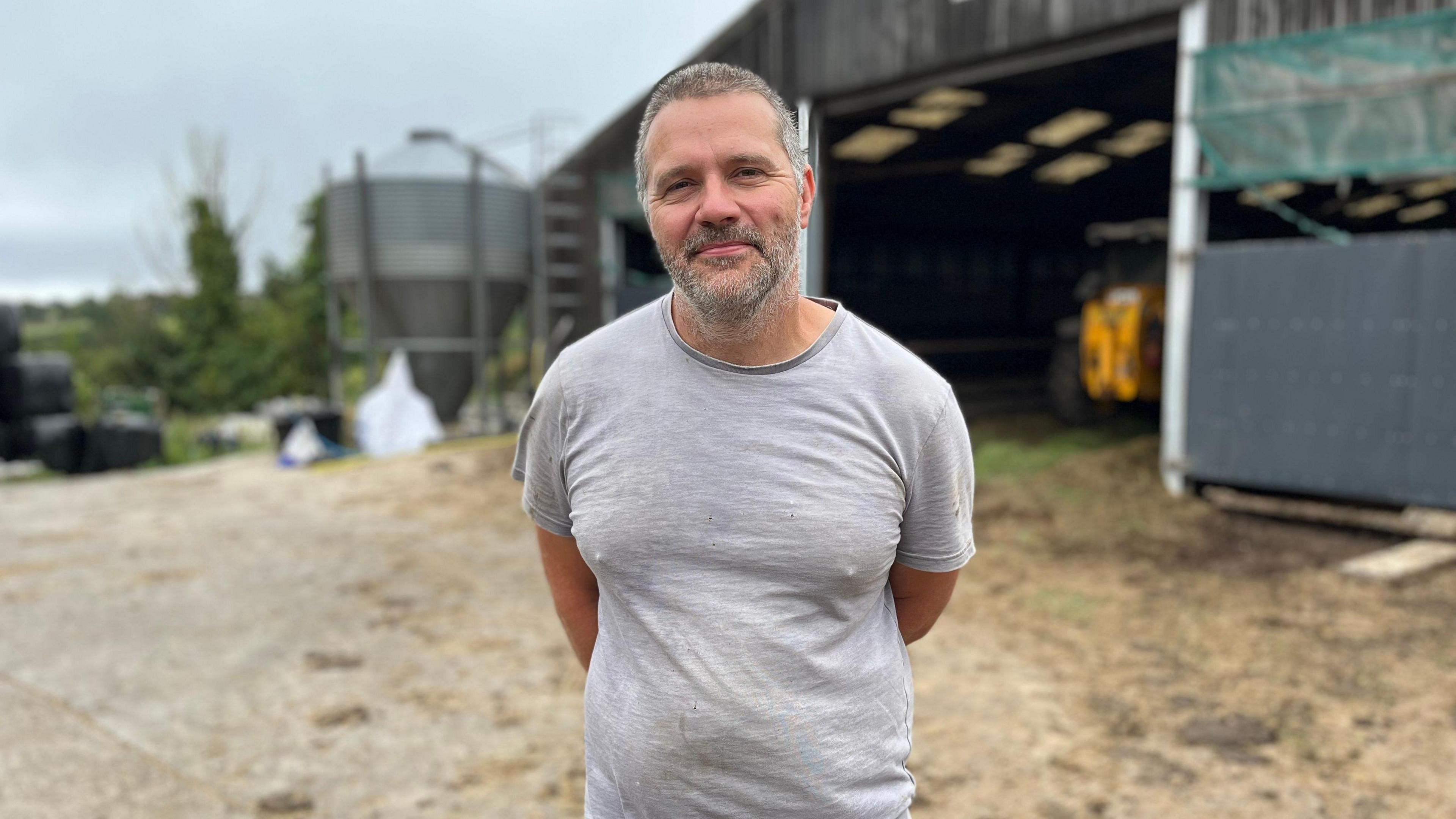
Michael Bray learned the ropes on farms in New Zealand and the UK
- Published
Young farmers and new farming technology are some the reasons to be positive about the future of the agricultural industry in Guernsey, according to the chair of the island's farmers' association.
Michael Bray is part of the young generation of farmers and took over Les Jaonnets Farm in St Saviour's in 2012, after leaving the island to learn the ropes on farms in New Zealand and the UK.
He said Guernsey had seen a "lot of younger farmers coming into the industry".
"Here in Guernsey we've got lots of farmers' sons and daughters coming in, so the future's looking really, really good," he said.
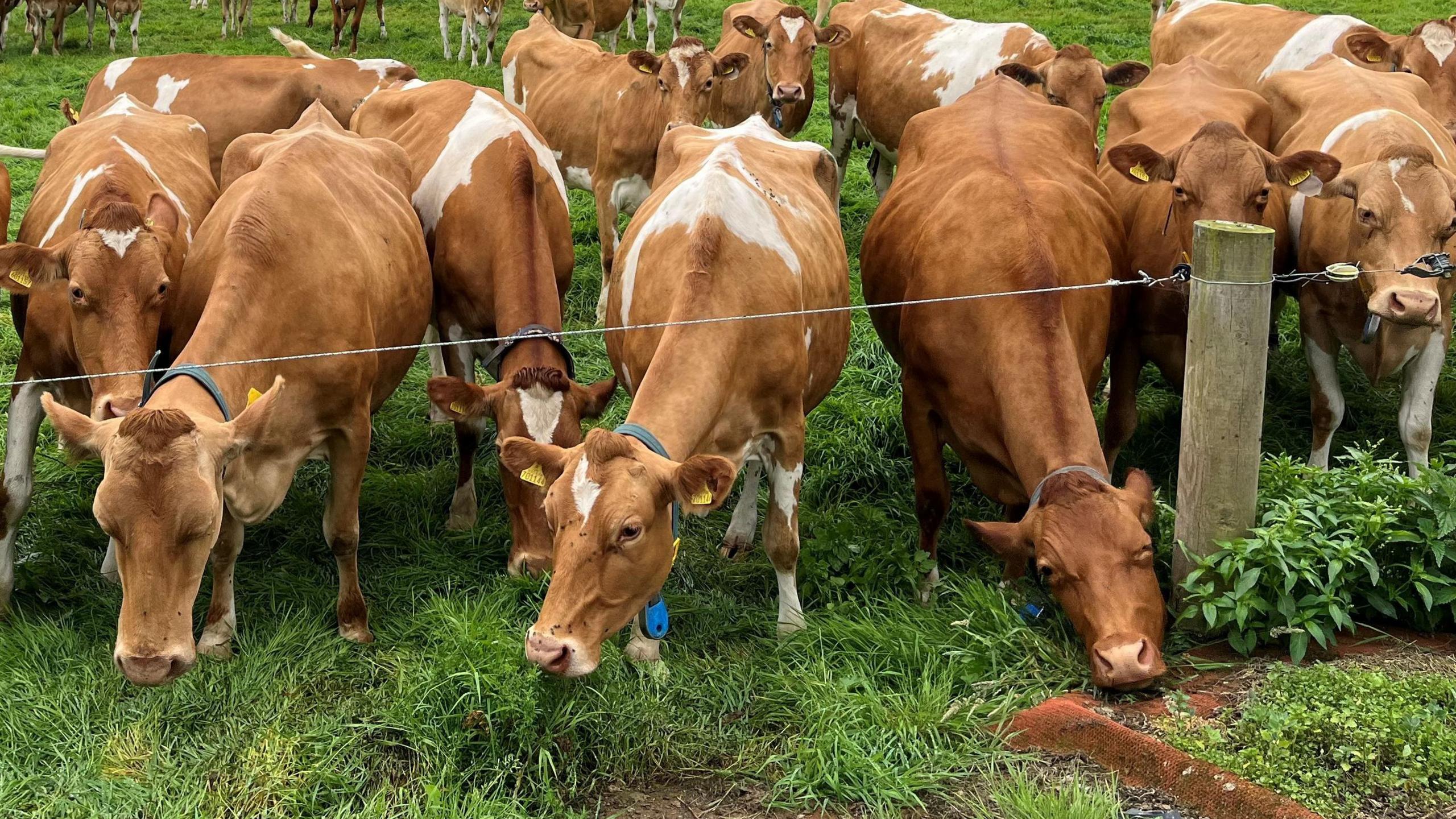
Mr Bray was the first farmer on the island to adopt a New Zealand-style grazing system
Mr Bray said there had been "some significant technological changes" including robotic milking, which made it an "interesting time" for farming.
"The cows just go in on their own free will, get milked and wander back out again, so things are starting to change."
Mr Bray and his wife Susie said they decided to adopt a New Zealand-style rotational grazing system, where cows move between small paddocks every 12 to 24 hours with the help of astroturf and electric fencing.
The change helps keep the cows healthy and improves the quality and quantity of milk, the pair said.
Hidden nature
Mr Bray said he believed the island's farms had become much more sustainable in recent years.
He said locally-grown maize had replaced imported soya from deforested land, which reduced the carbon footprint of feeding herds.
Mr Bray also highlighted the non-farming land farmers looked after, with 10% made up of scrub land, hedgerows and valleys.
Once "bracken and bramble" was cut back "suddenly you get a massive abundance of smaller wildflowers growing underneath it and that's fantastic for us to see", he said.
This maintenance work also created "access for birds and all the other wildlife that live in there", he said.
Mr Bray said being on call at all times could be a "mental strain".
"If an animal gets out or an animal is injured or whatever, you're on call and the buck stops with you every time," he said.
"[You put] everything on the line for your animals and make sure that everything you do is right for them."
Follow BBC Guernsey on X, external and Facebook, external and Instagram, external. Send your story ideas to channel.islands@bbc.co.uk, external.
Related topics
- Published11 March
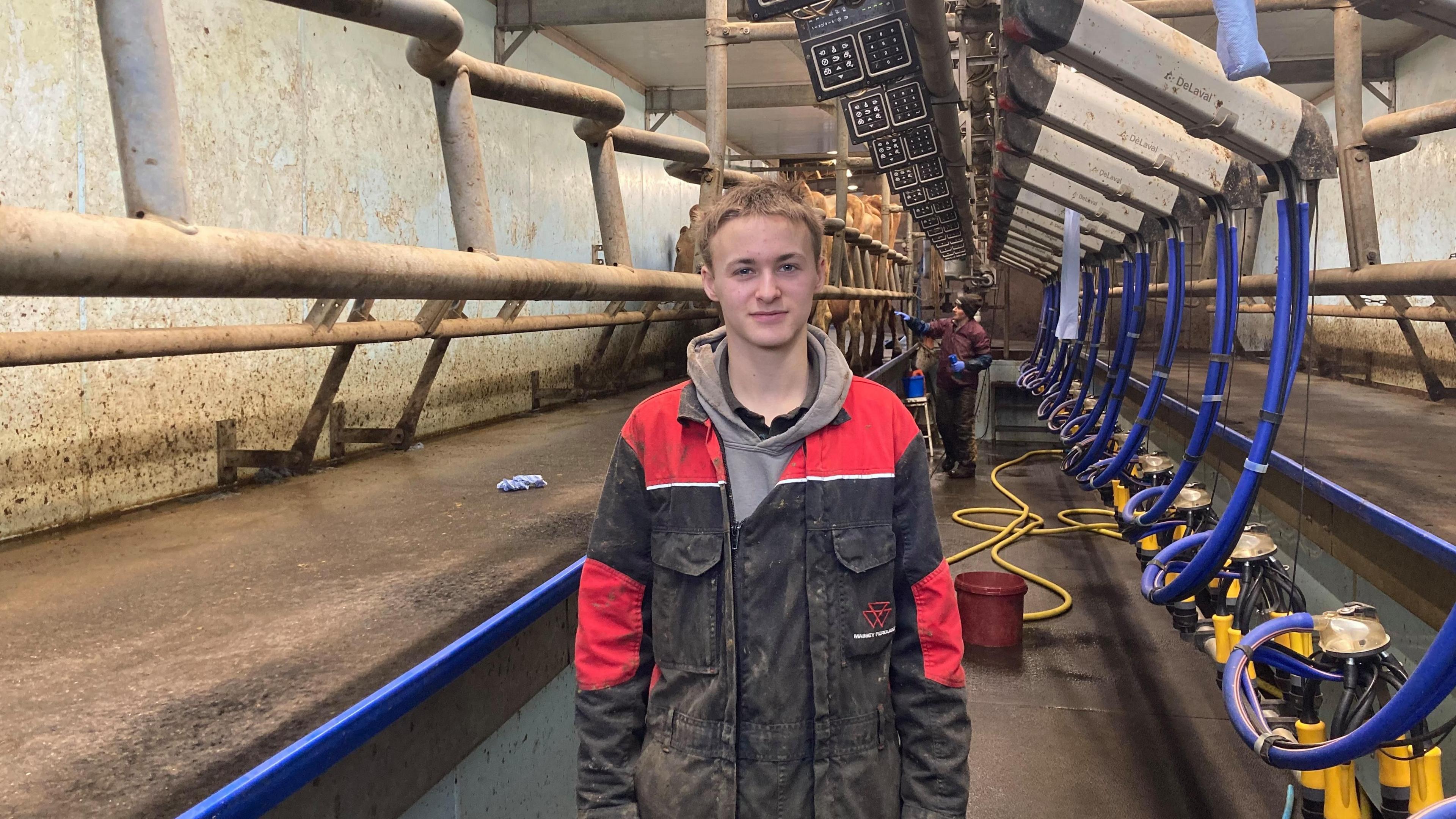
- Published10 April
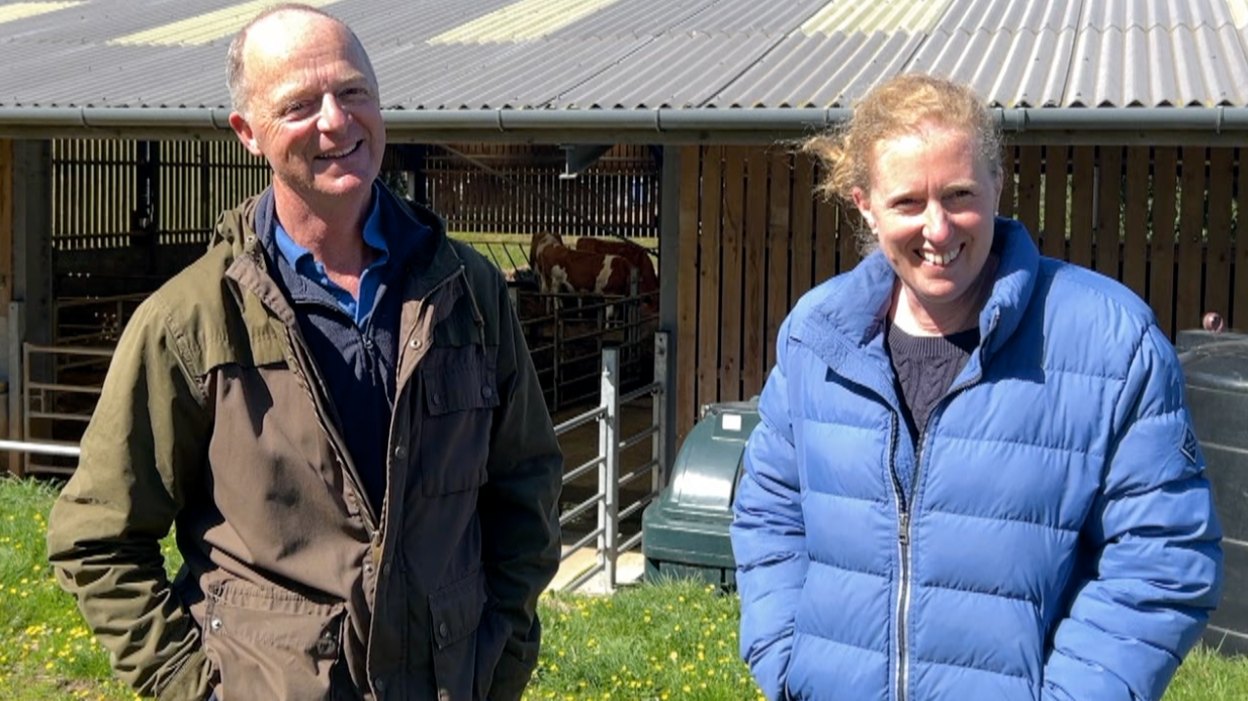
- Published20 November 2024
